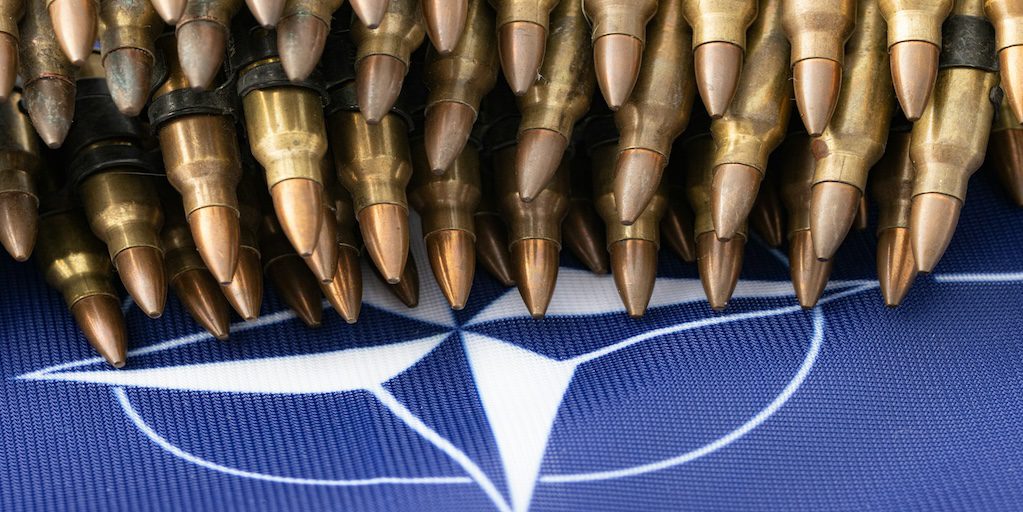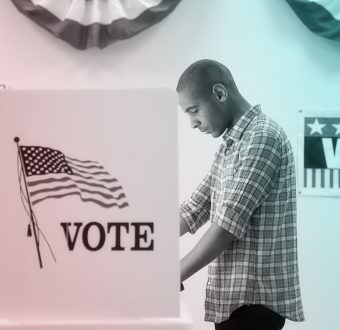NATO at 75: What’s Its Future?

Just past its 75th anniversary, what does the future hold for the alliance?
Russia’s war on Ukraine has divided Ukraine’s supporters as to the true stakes of the conflict and best course of action for their countries. We at the Institute for Global Affairs polled 3,360 people in the US, UK, Germany, and France (to which we refer collectively, if imprecisely, below as Western Europe) on national security and geopolitical challenges. Our survey reveals strong transatlantic support for urging a negotiated settlement to the conflict and a notable desire among European respondents for greater self-reliance in defense. As Europe grapples with the balance of responsibility, the US’s traditional role as the primary guarantor of European security is being reconsidered — signaling potential shifts in NATO dynamics and international diplomacy.
Sizable majorities in the US and Western Europe want NATO countries to push for a negotiated settlement in Ukraine. A plurality of respondents on both sides of the Atlantic believe the war must end due to the loss of life and casualties. This pragmatic view contrasts with the notion, common in the US press, of Europeans’ romantic hope for a total victory.
Despite any anxiety over the war, European perspectives on defense may be shifting. Majorities think Europe should be “primarily responsible for its own defense while aiming to preserve the NATO alliance.” Western Europeans are half as likely as Americans to believe the US should be primarily responsible for defending Europe. The desire to take more responsibility reflects a realistic assessment of the geopolitical landscape and Europe’s direct stakes in the conflict: while American aid to Ukraine dominates headlines and internal debate, Europeans bear substantial costs, providing for a flood of refugees, and footing the bill for the bulk of humanitarian aid even as they brace for potential escalation.
Nearly three times as many Western Europeans want a “neutral relationship” with the US as want the US to take primary responsibility for their defense. This view is most prominent in France, likely driven by President Emmanuel Macron’s call for “strategic autonomy,” comfort with the EU as a cultural, economic, and security bloc, or a sense that — with Donald Trump as the presumptive Republican nominee — the US is an increasingly capricious security partner. Only 6% of Western Europeans see the US as a “very reliable” guarantor of European security over the next decade. Two and a half times as many Western Europeans want the US to decrease or withdraw its troops from Europe as want it to increase its presence. Although a plurality prefers the status quo and Americans are more optimistic, Europeans’ desire for greater military self-sufficiency may signal a return to the dynamics of previous eras when Europe relied more on intra-European relationships than protection from a superpower an ocean away.

Mark is a senior fellow with the Independent America project at the Institute for Global Affairs and host of the podcast, None Of The Above.

Olivia is a researcher with the Institute for Global Affairs and producer of the podcast, None Of The Above.
This post is part of Independent America, a research project led out by IGA senior fellow Mark Hannah, which seeks to explore how US foreign policy could better be tailored to new global realities and to the preferences of American voters.





Americans Don’t Want a Wartime President